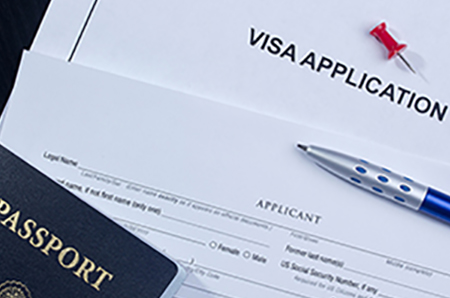The United States offers many educational opportunities for citizens of other countries. Educational visas, also known as student visas, give non-immigrant students from other countries the ability to stay in the United States long enough to enroll in and finish an educational program. When the program is finished, the international student must return home.
The type of education sought in the United States determines the type of student visa required. There are three types of student visas: F-Type, M-Type, and J-Type. International students working on academics (high school and college, for example) must apply for an F-Type visa. Students who will attend vocational schools must complete the M-Type student visa. Finally, students participating in foreign exchange programs complete the J-Type student visa
Before applying for a student visa, an international student must first be accepted into an academic institution in the United States. They must go through the same application process as U.S. citizens.
After being accepted into a U.S. academic program, international students should immediately make an appointment with the consulate to attain a student visa. Quickly making the appointment gives students plenty of time to receive the visa before school starts. The meeting usually requires payment of a fee and a personal interview. Issues to discuss during the interview include whether or not the international student wants to work while residing in the United States and if the student plans to bring a spouse and children as well.
International students must submit several documents to the consulate. These documents include an F-1 or M-1 certificate of eligibility, an online non-immigrant visa electronic application, an international passport, a photograph, and receipts for all fees paid.
Several important factors weigh heavily in any application for a student visa. These include the applicant’s residency abroad, intention of returning to the resident country upon completing the curriculum, and sufficient financial support. Other documentation that may be required includes old transcripts, diplomas, and standardized test scores.
The law surrounding getting and keeping a student visa can be complicated. Tthe facts of each case are unique. If you need help with your Student Visa, give us a call and we can help you, at The Orlando Law Group.
Last Updated on April 18, 2017 by The Orlando Law Group








